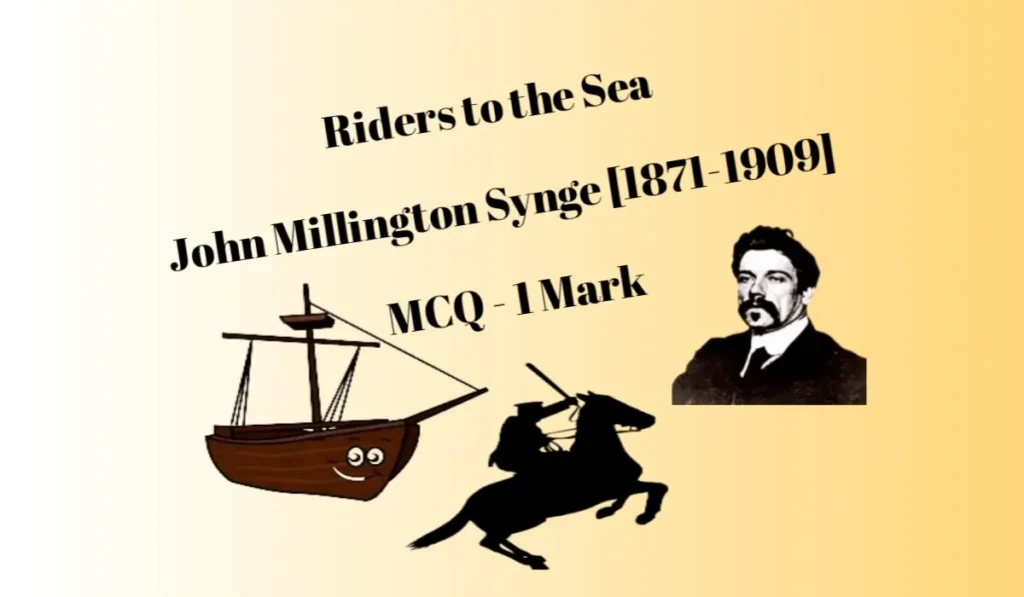Question : Essay-type
Bring out the elegiac elements in the Anglo-Saxon lyrics.
Introduction
It is very natural for a poet to introduce personal elements in his poetry. In Anglo-Saxon literature, we find certain poems containing such personal elements. Generally an elegiac note prevails in these poems.
Widsith
The Old English poem ‘Widsith’ is also known as ‘The Traveller’s Song’. It is a poem of 143 lines in which Widsith, the wandering minstrel, passed through many lands and met one liberal in gifts. The poem, therefore, breathes the atmosphere of joy and thankfulness. The bright atmosphere in the poem is an exception in Anglo-Saxon personal poetry.
Doer’s Lament
The Old English heroic poem of 42 lines ‘Deor’ is also known as ‘Deor’s Lament’ or ‘The Lament of Deor’. The poem is a lyrical outburst of a poet in trouble, who has been ousted at his court by a rival poet from his rights and lands. The mood of the poem is intensely personal.
Other Poems
Others are more or less elegiac in character. They contain their authors’ lamentation for the death of some person, the end of some glory, or the tragic separation from some near and dear ones. They bear the characteristics of elegies in their subjective note and pensive outlook. Moreover, some of these elegies are truly reflective, like modern elegies.
The Ruin
In the conception of the elegiac note, ‘The Ruin’ or ‘The Ruined Burg’ appears, perhaps, most outstanding. The subject-matter of the poem is the lamentation of an unknown Anglo-Saxon poet for the vanished glory of a city, the ruins of which stand before him. ‘The Ruin’ is an impressive elegy and echoes the modern elegiac note that muses on the way of the world and its tragedy. In this respect, it may rightly be taken as the most primitive predecessor of Gray’s ‘Elegy Written in a Country Churchyard’ and Arnold’s ‘The Scholar Gypsy”. ‘The Ruin’ stands out prominently as a personal poem of a remote age. It is thoroughly rich in descriptive details, and contains a graphic comparison between the past glory and the present degeneration of a city–the city of Bath. Here, again, the poem may well be taken as the earliest ancestor of Byron’s ‘Child Harold’s Pilgrimage’.
The Wanderer
The next important elegy is ‘The Wanderer’. The subject-matter of this elegy is the lamentation of a young man for his dead master. Once a thane in the service of a generous lord, he is now a weary wanderer who travels in a ship almost in state of exile. His fervent love for his dead lord leads him to dream of his union with him. But to his utter astonishment and despair, the wanderer wakes up on a cold and lonely sea and finds himself still haunted with the pang of separation from his dear lord. The poem may well be likened to Lord Tennyson’s immortal elegy ‘In Memoriam’.
The Seafarer
The most original and outstanding of all Anglo-Saxon elegies is ‘The Seafarer’ which is a sort of dramatic lyric. This is an elegy of 124 lines, followed by the single word ‘Amen’. Here the speaker is, probably, a tempest-driven mariner to whom the sea, in its fury and beauty, is alternately terrifying and alluring. The poem appears to be a monologue of a seaman. At the same time, it may look like a dialogue of an old sailor and a young one. The theme of the elegy is, however, is a kind of enumeration of the woes and worries of a seafarer’s life as also the rarity and beauty of the sea. The poem is also claimed as an allegory of human life. The seafarer allegories man in general, whereas the tossing, tumultuous sea stands for the problematic, hazardous human life. The unknown poet of ‘The Seafarer’ founded a tradition on sea life, which was to be developed subsequently by the great masters of English poetry, like Shelley, Byron and Kipling.
The Wife’s Lament & The Husband’s Message
‘The Wife’s Lament’ or ‘The Wife’s Complaint’ and ‘The Husband’s or Lover’s Message’, however, are much shorter poems. Yet, in their notes of personality and sincerity and in their profundity of feeling, their elegiac aspects are distinct. Both of them are dramatic monologues. What is more, they are love poems and rather unique in Old English poetry in this respect. Both of them deal with a husband and a wife who are separated. ‘The Wife’s Complaint’ is a lamentation of a young wife for her unjust separation from her beloved husband. The poem is impulsive and pensive. ‘The Husband’s or Lover’s Message’, equally a short poem, is much simpler, though rather novel in conception. The poem describes the message of the husband (or possibly a lover), engraved on a wooden tablet, which is forwarded to the beloved woman. Both ‘The Wife’s Complaint’ and ‘The Husband’s (or The Lover’s) Message’ may be taken as the earliest instances of English love poetry.
Related Question
Write a short note on the lyrical or subjective poetry of the Anglo-Saxon period.








